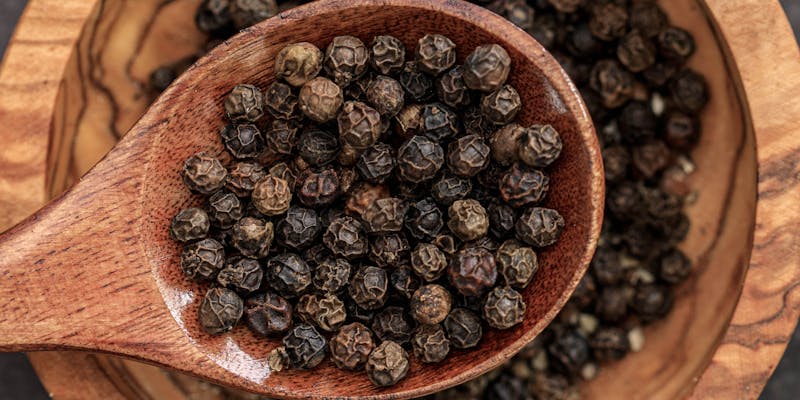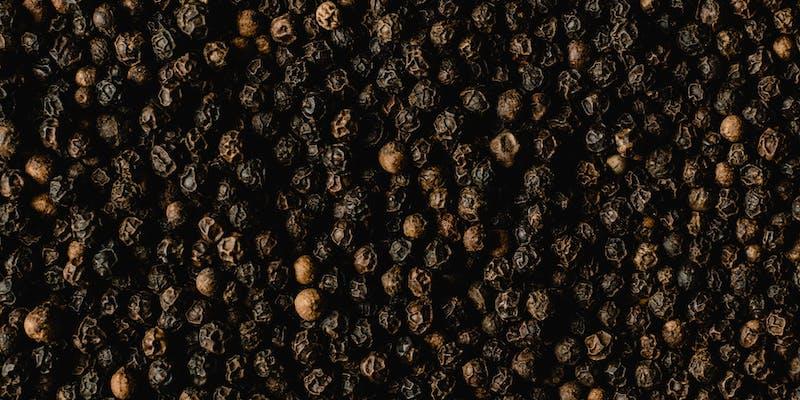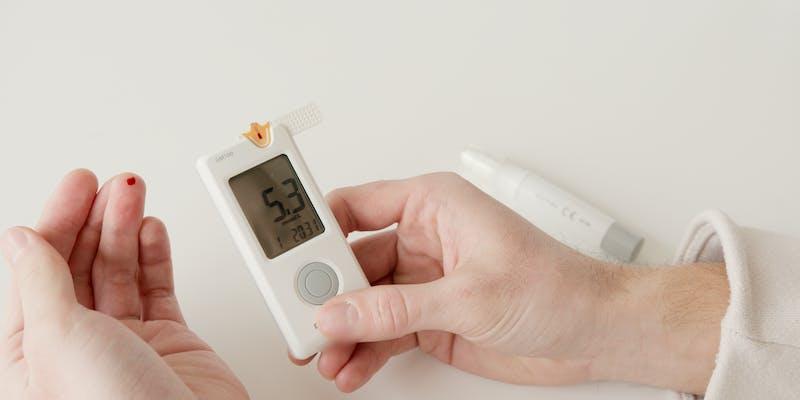
Bioperine, marketed under the trademark BioPerine, is a bioactive extract derived from black pepper (Piper longum L) and long pepper (Piper Nigrum L). Pinchiness is a characteristic attribute of piperine. Observations indicate that this dietary supplement extract promotes the assimilation of various nutrients. Although certain benefits of piperine remain to be conclusively demonstrated, it may also have antidepressant, tumor-inhibiting, and immune-suppressant properties. The potential hazards associated with piperine have elicited concerns, particularly concerning its capacity to augment the effects of particular medications. Please consult your physician before initiating any new treatments.
Chemical Composition of Bioperine
Bioperine, piperine, or black pepper is an alkaloid element identified in the Piper nigrum plant. Bioperine and piperine will be employed interchangeably throughout the discourse of this article. Characterizing its chemical composition, the molecular formula for this aromatic organic compound is C₁₷H₁₉NO₃. Black pepper's wide range of culinary applications can be attributed to the bitterness it derives from piperine, a substance with an acrid taste.
Bioperine benefits start from being included in an amide family compound in a crystalline state. The compound derives its unique aroma and flavor from the fusion of a piperidine ring with a benzene ring; this conformation represents its fundamental structural component. Bioperine also contains several functional groups, including an amide group (-CONH-), an unsaturated carbonyl group (-C=O), and a methoxy group (-OCH3) activities, which consist of antioxidant, bioavailability-enhancing, and anti-inflammatory functions.
Bioperine Dosage
The recommended dosage of this natural supplement is essential for safe and effective use. Supplements, Bioperine dosage concentrations, and nutrients or compounds can affect dosage recommendations. Read and follow the manufacturer's instructions carefully; consult a doctor or nurse for customized advice.
Five to ten milligrams per serving is the recommended therapeutic range for Bioperine. While considering the abovementioned factors, it is imperative to emphasize that individual responses may vary and that the optimal dosage may depend on body mass index, metabolic rate, and the specific purpose of supplementation.
Due to its potent nature, bioperine dosage exceeds the recommended dosage, which could increase the probability of experiencing adverse effects or interactions with other medications. It is consistently recommended to begin with the minimum effective dose and gradually increase it as necessary while remaining vigilant of the individual's physiological response. To conclude, when prescribing bioperine, follow the manufacturer's instructions, consult doctors, and consider patient characteristics when determining dosage.
Benefits Of Bioperine

Nutrient Absorption
Bioperine improves dietary substance absorption and utilization. The digestive tract often blocks healthy nutrients. Bioperine improves many nutrients. Even though we consume a balanced diet, inadequate nutrient assimilation prevents some individuals from receiving the full nutritional benefits of our food. Bioperine benefits may change this process by facilitating the absorption of these nutrients by the body.
An investigation might uncover that administering bioperine dosage can significantly enhance the absorption rates of vitamins A, C, and E, with some findings suggesting a 30% increase. This feature is critical as it facilitates the absorption of a higher concentration of advantageous compounds by the body from a comparable amount of food. Bioperine's "bio-enhancement" goes beyond aesthetics. Mechanically improving our condition. A vitamin-rich salad can be made healthier with a little Bioperine. Increase a meal's nutritional value without drastically changing one's diet or adding calories.
Antioxidant Properties
While rich in antioxidants, bioperine also aids nutrient absorption. Digestion-damaging free radicals with antioxidants restore DNA integrity. Cleanup is needed for free radicals, like party trash. Bioperine's antioxidants eliminate free radicals, protecting cells like sweeping a floor. The study hypothesizes that Bioperine's antioxidant properties may lower oxidative stress markers by 20%, improving cardiovascular health. The antioxidants in bioperine side effects, are not fake but are good for us. Lowering free radicals protects cells. Similar to a security system, this prevents health risks.
Memory Improvement
While further research on humans is necessary, animal studies have indicated that bioperine dosage may have the capacity to enhance memory function. Significant is the potential of bioperine to serve as a preventative agent against memory-related disorders, including Alzheimer's disease and dementia.
Memory loss and cognitive decline give rise to significant concerns as individuals age. Bioperine can improve memory, contributing to its potential as a supplement for mental health. For example, if an animal study provides evidence that cognitive performance on memory tests is enhanced by Bioperine supplementation, this could suggest that similar benefits could be observed in human participants.
Regulation of Blood Sugar

Bioperine Regulation of Blood Sugar Bioperine appeared to lower hyperglycemia in lab experiments. People with Type II diabetes or other hyperglycemia conditions must experience this impact to enhance their health and live longer. Consideration should be given to the fact that high blood sugar can induce organ damage and rapid onset of severe health complications. Bioperine comprises a potential risk management tool in the form of blood sugar moderation.
A research inquiry could potentially uncover that supplementing individuals with prediabetes with Bioperine leads to a 10% reduction in fasting blood sugar levels; this finding would underscore the substance's potential as a therapeutic agent for diabetes. Bioperine's ability to regulate blood sugar strikes many as a ray of optimism. A condition affecting millions of individuals worldwide, this natural remedy is an adjunctive measure to conventional therapies in its management.
Side Effects of BioPerine
Bioperine (piperine) is rarely harmful, but knowing the risks is important. Bioperine side effects have been shown to cause medication metabolism and effectiveness issues. Medical issues or prescription medications should be discussed with a doctor before adding bioperine. Overdosing on bioperine can cause nausea, vomiting, diarrhea, and stomach pain. With a history of gastrointestinal difficulties or a sensitive stomach, Bioperine should be taken at lower doses.
Moreover, due to its bioenhancing characteristics, bioperine can augment the digestion and accessibility of a wide range of substances, including potential toxins or contaminants, within the organism. Therefore, preserving the quality and integrity of bioperine-containing products obtained from reputable manufacturers is paramount. Some herbal supplements and bioenhancers interact anionically with bioperine. Be careful when taking Bioperine with other supplements. For more information, consult a doctor.
Take dietary supplements as advised and monitor your body's response. Stop using high bioperine dosage, and seek medical treatment if you have negative effects or allergic reactions. All in all, Bioperine has few side effects, although anyone with a history of health issues or who is taking medications should avoid it. Ask a doctor about safe product use.



